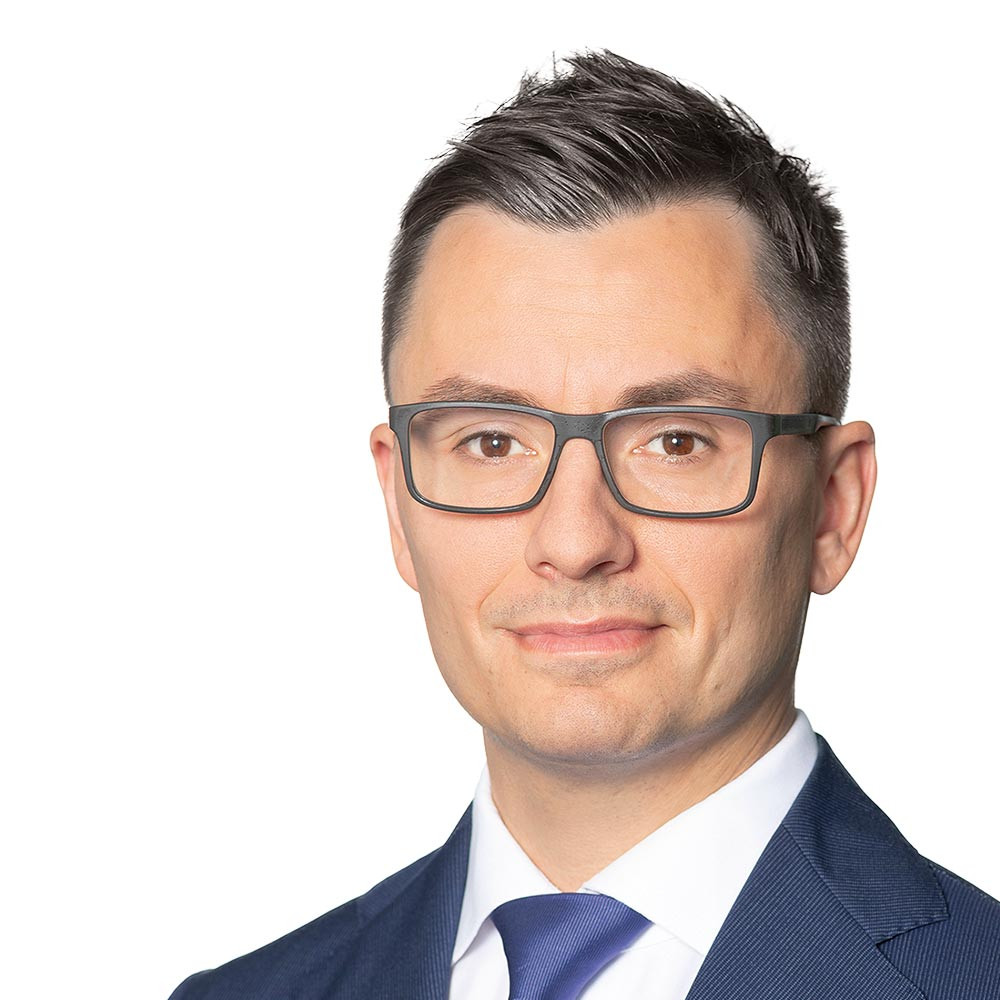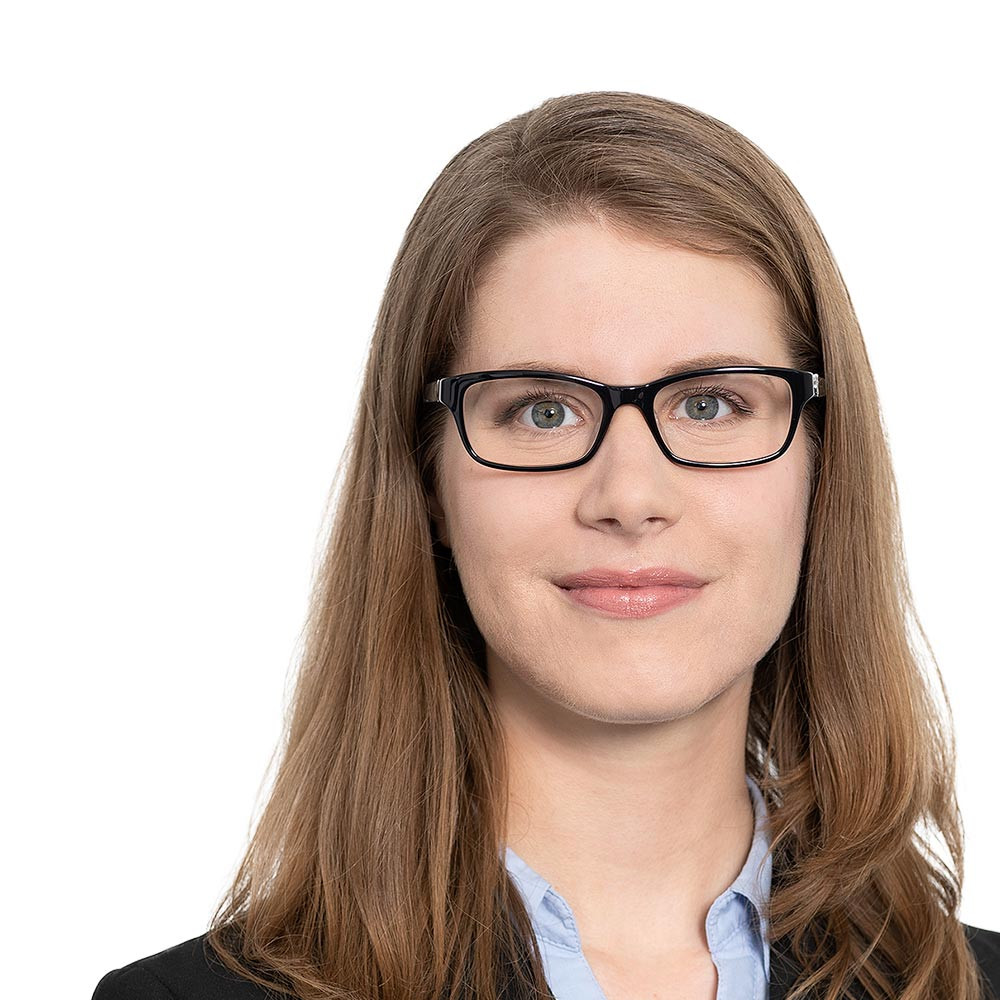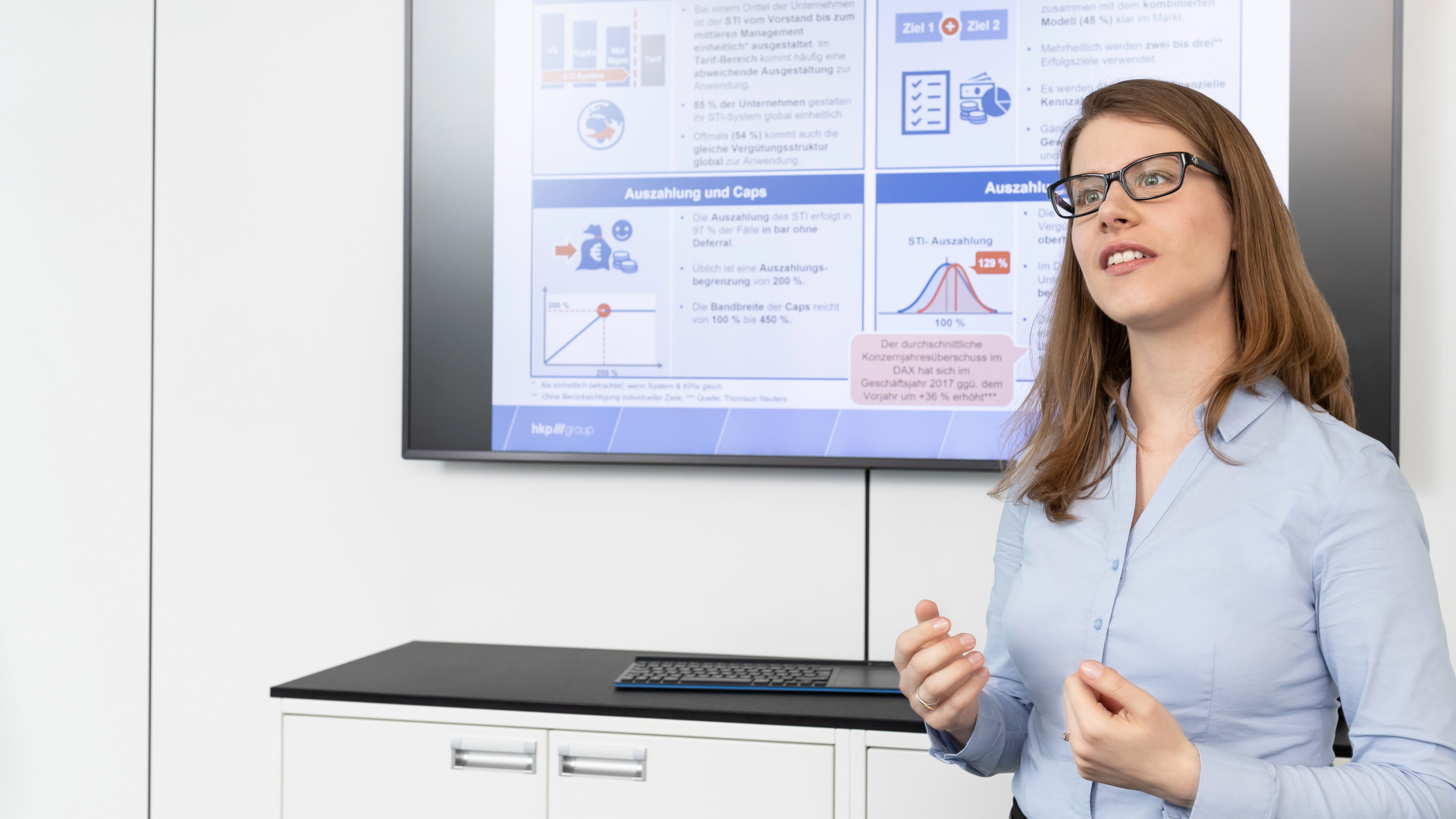On October 21, Frankfurt is set to host an event to reveal the results of hkp/// group's Top Management Survey (TMS). The salary comparison survey is now in its tenth year and has, since its launch, developed into an essential tool for HR and compensation in MDAX and similarly sized non-listed companies, delivering much more than just compensation benchmarks. A conversation with hkp/// group experts Verena Vandervelt and David Voggeser.
Ms. Vandervelt, Mr. Voggeser, having previously faced restrictions due to the Covid pandemic, you have decided to make the upcoming hkp/// group Top Management Survey results reveal an in-person event again. What prompted you to do so?
Verena Vandervelt: Well, we are now in the position to ensure all the required conditions for hosting the event safely at our office in Frankfurt. But of course, we have also taken the needs of those participants into account, who can only take part online. The past months have led us, and many others, to develop greater flexibility in this respect.
David Voggeser: Plus, an event like this thrives on in-person discussion. The direct dialog between participants is just as important as the content we present. In essence, it’s the regular expert and results meetings that account for much of the added-value our survey provides. In addition to the latest data on compensation and market practice, we also support the networking of HR and C&B managers via the TMS.
Each year, you decide on specific focus areas for the content of the hkp/// group compensation surveys. What are they this year?
David Voggeser: This year, one of the main themes is the compensation of IT experts. A great deal has happened in this area in recent years, and the Covid pandemic in particular has highlighted the value of having a well set-up IT department with the right experts in place. So, this topic not only applies to companies active in the IT sector but to companies from any industry that want to keep up with current market developments.
Because they’re competing for the best talent?
Verena Vandervelt: Exactly. The increased demand for IT specialists across all industries has, not surprisingly, led to correspondingly higher compensation expectations. Companies are then faced with the question of how to structure compensation packages, fringe benefits and conditions so that they appeal to both existing and newly recruited IT experts.
But compensation surely can’t address every problem...
David Voggeser: That’s true, but through our compensation comparison, we enable companies to avoid mistakes and to optimize themselves. And once you’ve participated in a results meeting and experienced the depth and quality of the professional dialog that takes place there, you’ll definitely want to do so again. Such an environment makes networking, learning from each other and sharing best practices easy.
Verena Vandervelt: But it’s also the format of these results meetings that makes them so appealing. We like to integrate innovative workshop and collaboration formats, such as EX design, prototyping, persona development and employee journeys, in order to work together on areas such as compensation strategy requirements.
Beyond the presentation format and the dialog involved, what is it that you specifically share in terms of results?
Verena Vandervelt: The TMS provides up-to-date and highly comparable compensation data. Over 60,000 lines of data from more than 70 companies were submitted this year. The analysis includes quantitative compensation data, but also detailed qualitative information on compensation systems, such as the structure of the STI and LTI across management levels, on compensation policies and practices, company pension plans, grading , etc.
As of this year, you are also supporting analyses on the structural benchmark of companies. What does that mean in concrete terms?
David Voggeser: It’s becoming increasingly less effective to look at compensation in isolation. As part of our combined organizational structure analyses we therefore focus on questions such as: What number and proportion of employees make up each job grade? How many non-tariff employees are there compared to tariff employees? What is the composition within each division? What are typical manager to employee ratios in the market? How does the organizational setup relate to company performance?
That sounds fascinating...
David Voggeser: It is, because by linking compensation, organization and, ideally, strategy, a simple compensation comparison suddenly becomes an extremely effective tool for operational and strategic corporate planning. Our innovative structural cost analyses enable Compensation & Benefits as well as HR strategy and organizational areas to position themselves more strategically and consequently to become more prominent in the company as a whole.
And how internationally reflective are the data and analysis results?
Verena Vandervelt: The TMS offers specific, customized analyses of compensation data, and enables analyses of compensation levels and structures across different organizational levels, pay grades, reporting lines, job families and jobs. But it also offers industry-specific evaluations, providing international data from more than 60 countries alongside extensive German market data.
In terms of the international nature of the data and its access, how important is data protection and how do you ensure the security of access?
Verena Vandervelt: Confidentiality and data protection are guaranteed throughout the entire survey process and particular attention is paid to the compliance with all relevant provisions of the EU GDPR as well as the new version of the German Federal Data Protection Act, the ECJ ruling on Privacy Shield as well as national and international competition law.
David Voggeser: All data is stored and processed exclusively within the EU on hkp/// group servers in Germany and the Netherlands. Moreover, our internal information security management is ISIS12 certified in accordance with ISO 27001.
Ms. Vandervelt, Mr. Voggeser, many thanks for the interview.



